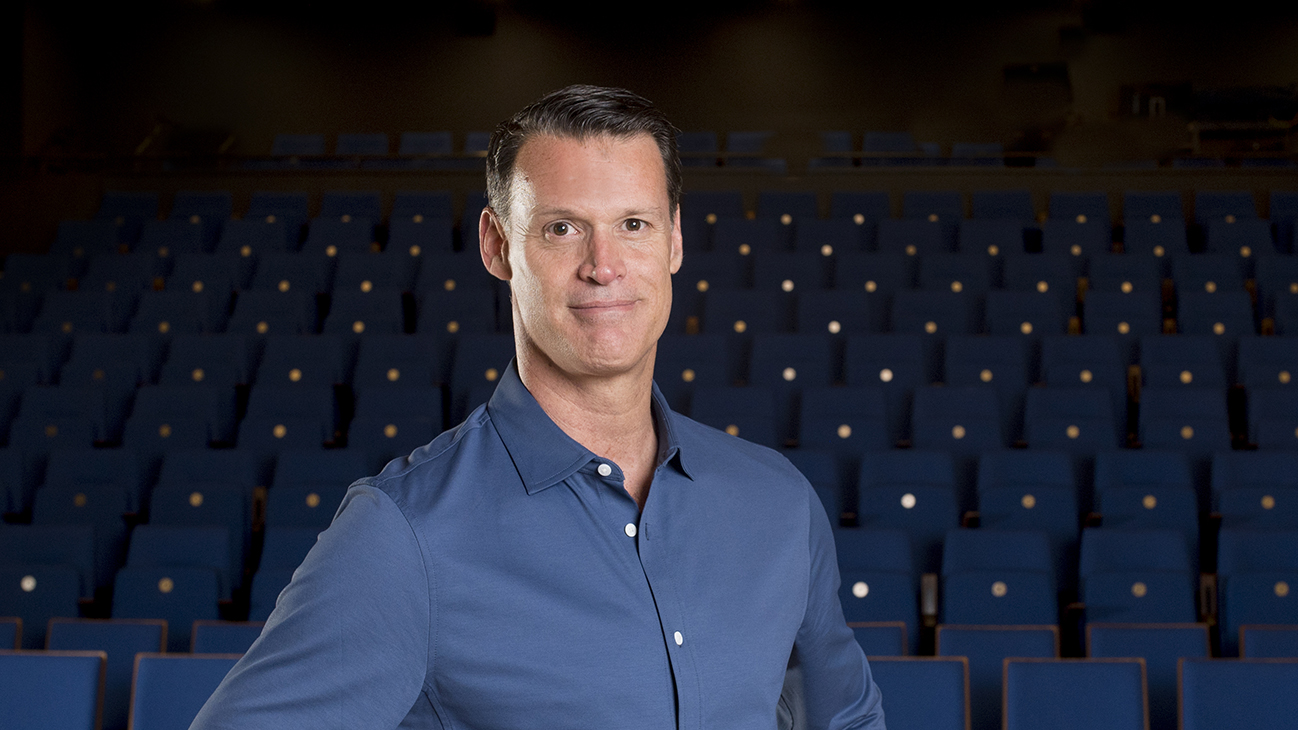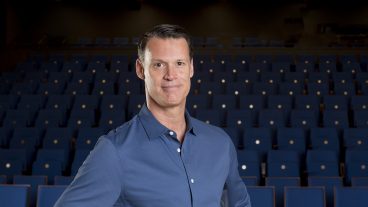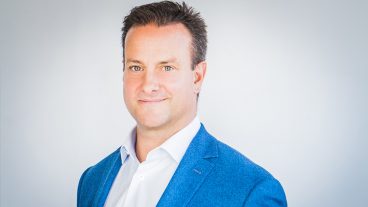Mark Tewksbury first burst on to the scene as a record-breaking Olympic swimmer. His 16-year athletic career included 21 national titles; 7 world records; Olympic gold, silver, and bronze medals; numerous awards; and a cover appearance on TIME magazine.
While sporting achievements contributed to his early success, it’s Mark’s post-Olympics life that has truly defined him. Mark came out as Canada’s first openly gay sports star almost 20 years ago, and has been a leader and mentor in the global LGBT human rights movement ever since. He is currently the Chair of Special Olympics Canada and is a director for the Canadian Olympic Committee.
We stepped into his world to ask three quick questions about his recent hit one-man-show commemorating his 20th anniversary of publicly coming out, and to learn a bit more about Mark himself.
1. December 15, 2018 marked your 20th anniversary of publicly coming out as Canada’s first gay Olympian. To commemorate it, you put together a one-man-show exploring your personal journey. What made you want to acknowledge this milestone in this way?
Twenty years ago, after facing discrimination and losing a corporate tour, I thought I might have to alter my speaking career once I came out, so I explored theatre. I had one successful performance on December 15th, 1998 and then one total disaster four months later where members of the audience asked for their money back — it was that bad! So, I guess part of this was about celebrating the milestone of 20 years, and part of it was redemption.
I had eight themes that I really wanted to explore — from mom and home to social justice and belonging. I wrote and performed the 1-hour and 40-minute show to two sold-out crowds in December, and was able to redeem myself while entertaining and inspiring the audiences as we celebrated this milestone together.
2. How do you think the response would have differed if you came out in today’s social landscape? Or, would there have been any difference?
Twenty years later, I wouldn’t have lost the cross-country speaking tour for being “too gay”. So, the entire situation changes. This is why doing the one-man show in 2018 was so interesting because so much had changed in 20 years. And I have changed with it.
I now have the opportunity to not just take a stand for personal integrity and authenticity but also, as a director of the Canadian Olympic Committee, help create an open environment for the next generation to train and compete in. This is a journey in and of itself, because I left the Olympic Movement in 1999 because of a lack of faith in international leadership — which is a whole other story!
3. You’ve worked with Debbie Muir on the Great Traits program for the past decade helping people and leaders perform at their best. What is one underrated quality people possess that can make them a great leader? Is there an overrated quality that isn’t as good as people think?
This is a great question. I think the most underrated quality is self-awareness. We believe leadership is ultimately about helping others be their best, which is very difficult to do if you are not aware of what is going on with yourself in the first place. Our programs begin with self-awareness, so that you can get yourself out of the way and be your best for those you lead.
In terms of overrated qualities, we have seen a shift from a more command and control style leadership to a connect and collaborate style. I think needing to be the boss that knows and controls everything is highly overrated and a sign of the past. Business success requires the ability to move in and out of teams in an ever-changing landscape — connecting and collaborating with people even better than you to meet business challenges. It’s not that you need to know everything, you have to have people on your team that round out the answers. High performance sport moved to an integrated support team model to leverage the strengths of the vast expertise within the system, to great success.
In his impactful talks, Mark Tewksbury inspires his audiences with his personal stories of leadership against the odds, creating a culture where teams perform at their best, and why integrity and social justice matter.
Interested in learning more about Mark and what he can bring to your next event? Email us at [email protected].




